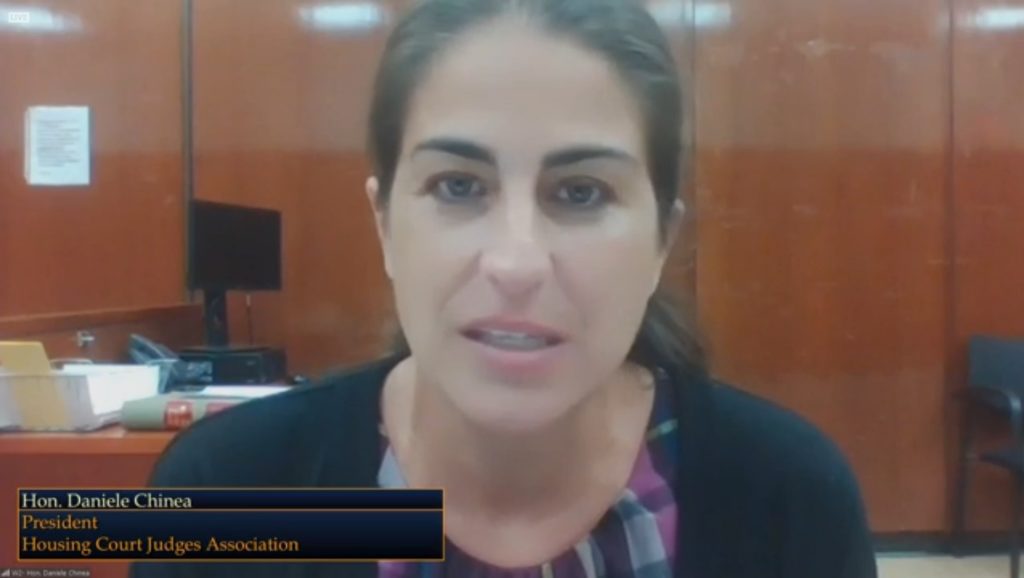Housing Court judge pleads with Legislature for help with looming housing crisis

 New York City Housing Court Judge Daniele Chinea had a prepared speech ready to present to the state senators on Friday during a hearing on the reopening of the court system during a pandemic, but she decided not to use them because she was afraid her point might not get across. Judge Chinea was determined to make clear that there is a looming crisis coming to the housing courts in New York City and 50 judges are not going to be enough to solve it.
New York City Housing Court Judge Daniele Chinea had a prepared speech ready to present to the state senators on Friday during a hearing on the reopening of the court system during a pandemic, but she decided not to use them because she was afraid her point might not get across. Judge Chinea was determined to make clear that there is a looming crisis coming to the housing courts in New York City and 50 judges are not going to be enough to solve it.
“We are 50 people,” Judge Chinea said. “We are facing 14,500 open warrants, 200,000 pre-pandemic cases that have not been heard, one in five tenants have not paid rent for April through June. That could be over one million people. We are at a maximum capacity of 10 Skype appearances per day per judge. The math is unassailable. 50 housing court judges cannot solve this problem for new Yorkers.”
Judge Chinea, who is the president of the Housing Court Judges Association, said that she was there to officially request for a coordinated response to the “tragedy in housing that is affecting us all.”

Brooklyn Boro
View MoreNew York City’s most populous borough, Brooklyn, is home to nearly 2.6 million residents. If Brooklyn were an independent city it would be the fourth largest city in the United States. While Brooklyn has become the epitome of ‘cool and hip’ in recent years, for those that were born here, raised families here and improved communities over the years, Brooklyn has never been ‘uncool’.